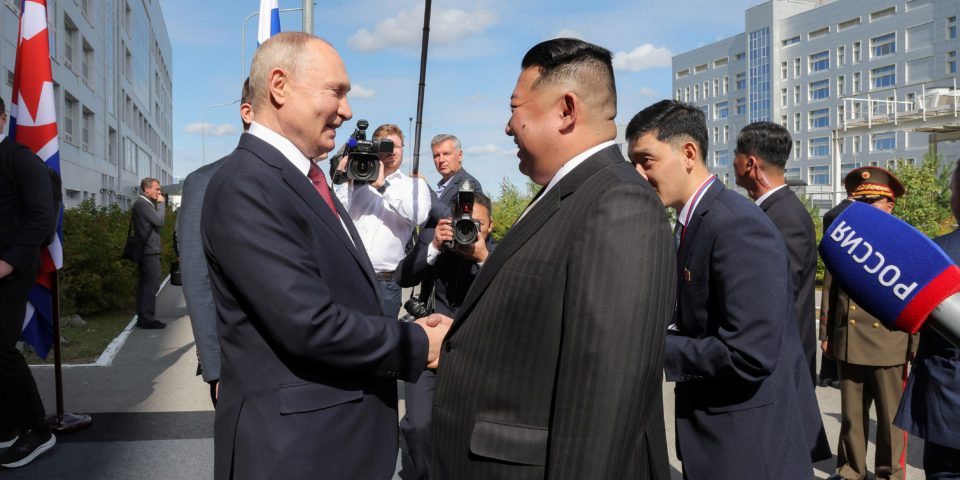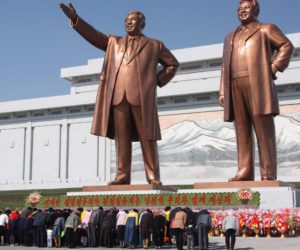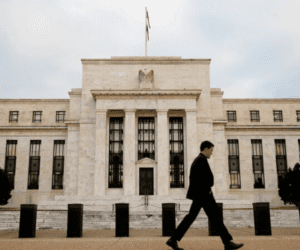
By Igor Cherkaskyi
Head, Financial Intelligence Unit, Ukraine
Russia announced last week it is formalising “all-encompassing” trade, security and financial ties with North Korea – the latest attempt to end Pyongyang’s isolation and provide it with a backdoor to the global economy and financial system.
It’s one of the most recent examples of the Kremlin’s sustained campaign to erode the integrity of the global financial system – combatting it requires using additional tools available to us.
Unnoticed by many observers, the Financial Action Task Force (FATF), the global watchdog, is one of the most effective agencies for constraining bad actors and upholding the security of the global financial system. FATF’s mission is to mitigate three key risks: money laundering, financing of terrorism and proliferation of weapons of mass destruction.
FATF blacklists countries that violate its standards and threaten global financial security. For example, Iran, North Korea and Myanmar – all of them Russia’s partners – currently share this distinction. This week FATF meets in Singapore, which presents an opportunity for decisive action against Russia’s violations.
To support its failing military bogged down in Ukrainian fields, Russia has become increasingly reliant on North Korea for munitions supply in violation of UN sanctions. It has fired dozens of North Korean ballistic missiles on peaceful Ukrainian cities this year. To cover up its violations, in March 2024, Russia exercised its veto to discontinue the UN expert panel monitoring North Korea sanctions implementation.
The Kremlin also supplies North Korea with oil and has reportedly helped the country access banking services, again in violation of the UN sanctions. The Russia-North Korea axis is thereby giving Kim Jong Un’s dictatorship a route back into the global economy that almost universally shunned it.
Russia has similarly provided a back door for Iran to access the international financial system in breach of the FATF rules. Russia has given Iran access to the SPFS, a financial transfer system that Russia introduced to bypass SWIFT sanctions. Russian state-owned bank VTB has opened a branch in Tehran. Iran has also become a source of weapons for Russia, with Iranian-made drones used against Ukrainian cities and civilian targets.
At the time when Russia continues to have access to the global banking system, it is integrating the most dangerous global actors into its economy, while also weakening money laundering safeguards and corporate transparency standards.
‘If blacklisted, Russia will be recognised as a high-risk jurisdiction and find its access to the global financial system seriously restricted because of onerous due diligence requirements imposed on its counterparties’
The Kremlin overtly funds terrorism, through state sponsorship of the Wagner Group – a global mercenary force that has been designated a terrorist organisation by the UK government and transnational criminal organisation in the US. The Kremlin is also increasing ties with the Taliban, reportedly preparing to recognise it as the legitimate government of Afghanistan.
In February 2023, FATF took the unprecedented step of suspending russia’s membership, expressing concern about reported arms trade with the UN-sanctioned states as well as malicious cyber-activities emanating from Russia. While a welcome step, Russia’s subsequent actions have proven that the Kremlin’s increasing illicit finance activities require tougher measures. The next natural step at the upcoming plenary in Singapore would be for FATF to place Russia on its so-called blacklist.
If blacklisted, Russia will be recognised as a high-risk jurisdiction and find its access to the global financial system seriously restricted because of onerous due diligence requirements imposed on its counterparties. Russia’s Central Bank has previously said that this step would frustrate much of its financial activity.
Such action by FATF will help to protect national financial systems and international business from injections of Russian dirty money that includes the proceeds from its terrorist activities in Ukraine.
‘FATF member states need not wait for blacklisting to occur before acting. Most countries have their own lists of jurisdictions that pose a high risk of money laundering and terrorism financing’
FATF’s blacklisting of Russia will also mitigate threats to businesses that either knowingly or unknowingly are at risk of involvement in Russia’s intermediary networks that facilitate sanctions circumvention. These businesses face the prospect of becoming the target of secondary sanctions or losing correspondent relationships with Western banks.
Blacklisting will, by extension, counteract the intense political pressure from Russia on some of its trade partners to help it evade sanctions.
At the same time, it will send a clear signal that there will be a serious response to other countries with a lax attitude to dirty money and a disregard for the rules protecting global financial security.
FATF member states need not wait for blacklisting to occur before acting. Most countries have their own lists of jurisdictions that pose a high risk of money laundering and terrorism financing. These lists, like in the UK and EU, can be used to increase pressure on Russia and heighten compliance of the private sector. Canada has shown the way by requiring Canadian financial institutions to treat all Russia-linked transactions as high risk. Other countries can follow.
It is clear by now that warnings and statements from the international community cannot persuade Russia to change its ways. Failing to address its egregious violations of international norms will only invite intensifying malicious behaviour and encourage other malign actors.
It is time for the international community to introduce tougher measures against Russia to protect themselves and their financial systems.











